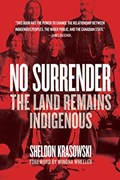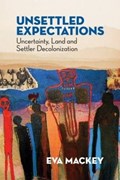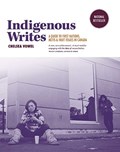Narrow Results By
No surrender : the land remains Indigenous
https://archives.whyte.org/en/permalink/catalogue25009
- Medium
- Library - Book (including soft-cover and pamphlets)
- Published Date
- 2019
- Author
- Krasowski, Sheldon
- Publisher
- Regina, Saskatchewan : University of Regina Press
- Call Number
- 07.2 K85t
1 website
- Author
- Krasowski, Sheldon
- Publisher
- Regina, Saskatchewan : University of Regina Press
- Published Date
- 2019
- Physical Description
- xviii, 368 pages : illustrations, map
- Subjects
- First Nations
- Canada
- Land use
- Landscapes
- Abstract
- Between 1869 and 1877 the government of Canada negotiated Treaties One through Seven with the Indigenous peoples of the Great Plains. Many historians argue that the negotiations suffered from cultural misunderstandings between the treaty commissioners and Indigenous chiefs, but newly uncovered eyewitness accounts show that the Canadian government had a strategic plan to deceive over the "surrender clause" and land sharing. According to Sheldon Krasowski's research, Canada understood that the Cree, Anishnabeg, Saulteaux, Assiniboine, Siksika, Piikani, Kainaa, Stoney and Tsuu T'ina nations wanted to share the land with newcomers--with conditions--but were misled over governance, reserved lands, and resource sharing. Exposing the government chicanery at the heart of the negotiations, No Surrender demonstrates that the land remains Indigenous. (from U of R Press website)
- Contents
- The numbered treaties in historical context : "Our dream is that one day our peoples will be clearly recognized as nations" -- Treaties One and Two and the outside promise : "The loyalty which costs nothing is worth nothing" -- Treaty Three : The North-West Angle Treaty : "I take off my glove to give you my hand to sign the treaty" -- Treaties Four and Five : the Fort Qu'Appelle and Lake Winnipeg treaties, 1874 and 1875 : "The Treaties should be Canada's Magna Carta" -- Treaty Six : the Treaty of Forts Carlton and Pitt : "I want to hold the treaty we made with the Queen" -- Treaty Seven : the Blackfoot Crossing treaty : "The great spirit and not the great mother gave us this land" -- As long as the sun shines : "An everlasting grasp of her [the Queen's] hand."
- ISBN
- 9780889776067
- Accession Number
- P2020-1
- Call Number
- 07.2 K85t
- Collection
- Archives Library
- URL Notes
- Summary on University of Regina Press website
Websites
This material is presented as originally created; it may contain outdated cultural descriptions and
potentially offensive content.
Read more.
Unsettled expectations : uncertainty, land and settler decolonization
https://archives.whyte.org/en/permalink/catalogue25062
- Medium
- Library - Book (including soft-cover and pamphlets)
- Published Date
- 2016
- Author
- Mackey, Eva
- Publisher
- Halifax ; Winnipeg : Fernwood Publishing
- Call Number
- 07.2 M11u
1 website
- Author
- Mackey, Eva
- Publisher
- Halifax ; Winnipeg : Fernwood Publishing
- Published Date
- 2016
- Physical Description
- x, 224 pages
- Subjects
- First Nations
- Canada
- Politics
- Land use
- Abstract
- What do local conflicts about land rights tell us about Indigenous-settler relations and the challenges and possibilities of decolonization? In Unsettled Expectations, Eva Mackey draws on ethnographic case studies about land rights conflicts in Canada and the U.S. to argue that critical analysis of present-day disputes over land, belonging and sovereignty will help us understand how colonization is reproduced today and how to challenge it. Employing theoretical approaches from Indigenous and settler colonial studies, and in the context of critical historical and legal analysis, Mackey urges us to rethink the assumptions of settler certainty that underpin current conflicts between settlers and Indigenous peoples and reveals settler privilege to be a doomed fantasy of entitlement. Finally, Mackey draws on case studies of Indigenous-settler alliances to show how embracing difficult uncertainty can be an integral part of undoing settler privilege and a step toward decolonization. (from Fernwood Publishing website)
- Contents
- Part one. Contact zones and the settler colonial present -- Introduction : settler colonialism and contested homelands -- 1. Genealogies of certainty and uncertainty -- 2. Fantasizing and legitimating possession -- Part two. Ontological uncertainties and resurgent colonialism -- Introduction : unsettled feelings and communities -- 3. Defending expectations -- 4. Settler jurisdictional imaginaries in practice : equality, law, race and multiculturalism -- Part three. Imagining otherwise : embracing settler uncertainty -- Introduction : treaty as a verb -- 5. "Turning the doctrine of discovery on its head" : the Onondoga land rights action -- 6. Creative uncertainty and decolonizing relations -- Epilogue -- References -- Index.
- ISBN
- 9781552668894
- Accession Number
- P2020-1
- Call Number
- 07.2 M11u
- Collection
- Archives Library
- URL Notes
- Summary on Fernwood Publishing website
Websites
This material is presented as originally created; it may contain outdated cultural descriptions and
potentially offensive content.
Read more.
Indigenous writes : a guide to First Nations, Metis & Inuit issues in Canada
https://archives.whyte.org/en/permalink/catalogue25010
- Medium
- Library - Book (including soft-cover and pamphlets)
- Published Date
- 2016
- Author
- Vowel, Chelsea
- Publisher
- Winnipeg, MB, Canada : HighWater Press
- Call Number
- 07.2 V85i
1 website
- Author
- Vowel, Chelsea
- Publisher
- Winnipeg, MB, Canada : HighWater Press
- Published Date
- 2016
- Physical Description
- xii, 290 pages : illustrations, map
- Subjects
- First Nations
- Canada
- Writing
- Abstract
- In Indigenous Writes, Chelsea Vowel initiates myriad conversations about the relationship between Indigenous peoples and Canada. An advocate for Indigenous worldviews, the author discusses the fundamental issues--the terminology of relationships; culture and identity; myth-busting; state violence; and land, learning, law and treaties--along with wider social beliefs about these issues. She answers the questions that many people have on these topics to spark further conversations at home, in the classroom, and in the larger community. (from publisher)
- Contents
- Introduction : how to read this book -- Part 1. The terminology of relationships -- 1. Just don't call us late for supper : names for Indigenous peoples -- 2. Settling on a name : names for non-Indigenous Canadians -- Part 2. Culture and identity -- 3. Got status? : Indian status in Canada -- 4. You're Me´tis? Which of your parents is an Indian? : Me´tis identity -- 5. Feel the Inukness : Inuit identity -- 6. Hunter-gatherers or trapper-harvesters? : why some terms matter -- 7. Allowably Indigenous : to ptarmigan or not to ptarmigan : when indigeneity is transgressive -- 8. Caught in the crossfire of blood-quantum reasoning : popular notions of Indigenous purity -- 9. What is cultural appropriation? : respecting cultural boundaries -- 10. Check the tag on that "Indian" story : how to find authentic Indigenous stories -- 11. Icewine, roquefort cheese, and the Navajo Nation : Indigenous use of intellectual property laws -- 12. All my queer relations : language, culture, and two-spirit identity -- Part 3. Myth-busting -- 13. The myth of progress -- 14. The myth of the level playing field -- 15. The myth of taxation -- 16. The myth of free housing -- 17. The myth of the drunken Indian -- 18. The myth of the wandering nomad -- 19. The myth of authenticity -- Part 4. State violence -- 20. Monster : the residential-school legacy -- 21. Our stolen generations : the sixties and millenial scoops -- 22. Human flagpoles : Inuit relocation -- 23. From hunters to farmers : Indigenous farming on the prairies -- 24. Dirty water, dirty secrets : drinking water in First Nations communities -- 25. No justice, no peace : the Royal Commission on Aboriginal Peoples -- Part. 5. Land, learning, law, and treaties -- 26. Rights? What rights? : doctrines of colonialism -- 27. Treaty talk : the evolution of treaty-making in Canada -- 28. The more things change, the more they stay the same : numbered treaties and modern treaty-making -- 29. Why don't First Nations just leave the reserve? : reserves are not the problem -- 30. White paper, what paper? : more attempts to assimilate Indigenous peoples -- 31. Our children, our schools : fighting for control over Indigenous education.
- ISBN
- 9781553796800
- Accession Number
- P2020-1
- Call Number
- 07.2 V85i
- Collection
- Archives Library
- URL Notes
- Summary on Highwater Press / Portage & Main Press website
Websites
This material is presented as originally created; it may contain outdated cultural descriptions and
potentially offensive content.
Read more.



